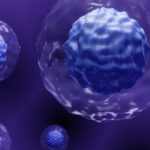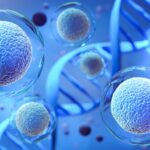After a decade of innovation, chimeric antigen receptor (CAR)-T cell therapy remains at the forefront of the cell and gene therapy space, continuing to forge new ground to treat previously intractable cancers and diseases (Figure 1). Since 2017, six CAR-T cell therapies have been approved by the Food and Drug Administration (FDA) and all are approved for the treatment of blood cancers– lymphomas, leukemias, and myelomas. Although movement into solid tumors and non-oncological indications is gaining ground, blood cancers still undoubtedly dominate the CAR-T space, and we are likely to see continued growth and more approvals in the coming years1.

Figure 1. Typical CAR-T workflow.
Many of the trailblazing CAR-T-cell therapy researchers believe the next decade could yield even better results than we have already seen. Still, they acknowledge several challenges that must be overcome in order to build on the modality’s momentum and success. The scope to further optimize CAR-T cell design to improve persistence, and increase control of activity and toxicity, are bringing us closer to next-generation CAR-T cell therapies against non-oncological and solid tumor indications that will be safer and more effective2. The development of scalable, allogeneic, “off-the-shelf” CAR-T cell products will reduce the cost burden and increase patient access to these life-saving therapies. In addition, challenges related to commercial production of CAR-T cell therapies within the regulatory requirements must be addressed to streamline the transition from research to manufacturing.
CAR-T Successes
CAR-T cell therapies are now widely available in the United States and have become a part of modern medicine as a standard treatment for patients with relapsed and refractory (r/r) blood cancers. Questions surrounding the long-term persistence and curative potential of infused cells were recently answered. The lab of Carl June (University of Pennsylvania), which pioneered CAR-T cell therapy, found the treatment to be durable after ten years. In the original 2010 trial (NCT01029366), both patients with chronic lymphocytic leukemia (CLL) infused with CD19-specific CAR-T (CTL019) cells achieved complete remission. A decade later, there is no detectable trace of leukemia cells and the presence of long-persisting and active CD4+ CTL019 CAR-T cell populations has been detected in both patients3. “We can now conclude that CAR-T cells can actually cure patients with leukemia,” said Carl June, MD, during a press briefing about the data4.
These findings are truly pivotal and offer intriguing new insights into the nature of long-term CAR-T cell signalling and persistence that will influence the development of next-generation therapies, which will be safer, more effective, and more accessible for more patients4.
Latest CAR-T Developments
1. Improving CAR-T Safety
Cytokine release syndrome (CRS) and neurotoxicity are toxicities commonly associated with CAR-T cell treatment. Although these toxicities are typically reversible with interventions such as corticosteroids or IL-6 receptor blockade, they can sometimes be fatal. Several strategies are being evaluated including engineering safety mechanisms (e.g., safety switches or suicide genes) into CAR-T cells to mitigate these effects.
Safety Switches: The creation of molecular ON-OFF switches can regulate the activity of CAR-T cells after infusion to mitigate toxicities5-7. One approach utilizes targeted protein degradation, exploiting a mechanism the cells use to dispose of unwanted or abnormal proteins7. Small protein tags engineered onto the CAR make it vulnerable to degradation when treated with the drug lenalidomide. This OFF switch allows CAR-T treatment to be paused temporarily to prevent CRS. CAR-T cells can switch back ON when lenalidomide is stopped so they can resume their anti-tumor activity.
Suicide Genes: Another strategy for reducing severe toxicities is to selectively trigger CAR-T apoptosis with the inclusion of the inducible caspase 9 (iC9) suicide gene in the CAR construct to control CAR-T cell activity5,8. This gene – iC9 – is activated through binding to an inert small molecule (AP1903). Bellicum Pharmaceuticals’ clinical CAR-T candidate (BPX-603) for patients with human epidermal growth factor 2 (HER2)+ solid tumors utilizes their CaspaCIDe® safety switch technology designed to eliminate CAR-T cells in vivo in the event of toxicity through chemically induced dimerization of iC9 (NCT04650451).
2. Solid Tumors and Overcoming the Tumor Microenvironment
T Cell Exhaustion: CAR-T cell exhaustion is a major limitation to its therapeutic efficacy, particularly in its application to solid tumors. This phenomenon is thought to result from persistent antigen stimulation and the immunosuppressive tumor microenvironment (TME)8. Overcoming T cell exhaustion to maintain CAR-T cell effector function and persistence remains a central challenge. Novartis is currently trialing two CAR-T therapies produced using their T-Charge™ platform, which preserves T cell stemness, resulting in fewer exhausted T cells with recently released Phase 1 data for YTB323 and PHE885 (NCT03960840, NCT05172596) showing positive results.
Antigen Escape: Resistance to CAR-T cell therapy commonly occurs via “antigen escape” where tumor cells lose or downregulate expression of the target antigen allowing them to evade CAR-T cells. This poses a greater barrier to success in solid tumors, given the greater heterogeneity in target antigen expression9. One way to overcome this is by developing CAR constructs that target more than one tumor antigen. Carina Biotech in collaboration with AdAlta is developing bispecific CARs targeting two antigens on cancer cells to enhance cancer targeting and efficacy.
Alternative T cell Populations: Other groups are looking at arming different T cell subsets with CARs and engineering tumor infiltrating lymphocytes (TILs) that may have better efficacy for solid tumors and the immunosuppressive TME. Poseida’s CAR-T products are focused on the stem cell memory T cell subset (TSCM) including their autologous CAR-T candidate P-PSMA-101 targeting solid tumor prostate cancer (NCT04249947). Adicet Bio is working on allogeneic CAR-T therapies using the ɣẟ T cell subset (ADI-001).
Targeting TILs that already have the innate ability to penetrate the TME can be an effective mechanism to target solid tumor cancers. Several groups like Obsidian Therapeutics are working on engineering TILs to improve their antitumor activity against different indications.
3. Allogeneic CAR-T Therapies
Despite the clinical success of autologous CAR-T cell therapy for hematologic malignancies, their complex manufacturing period and high cost limit the widespread use of these therapies. Developing “off-the-shelf” allogeneic CAR-T products using high-quality donor cells may provide high numbers of cells with stronger proliferative capacity to help cut down manufacturing time, bring down the cost, and increase accessibility to patient populations10,11. Companies such as Immatics, CRISPR Therapeutics, Atara Bio, Allogene, and many others are actively working to bring allogeneic therapies to the market. Raw material consistency and quality are essential for the success of these investigational programs. Fortunately, established suppliers like AllCells are capable of providing high-quality, scalable sources of donor T cells to support these development efforts and ensure supply chain reliability for commercial processes.
Bulk isolations of T cells from leukopaks are collected from healthy, IRB-consented donors at FDA-registered facilities across the US. Adjacently-located processing facilities minimize time between collection and isolation, to preserve cellular viability and functionality. Positive selection magnetic activated cell sorting—the gold standard in cell separation technology—is used to achieve large-scale, high-purity T cell isolations (negative selection available upon request) suitable for a number of biological assays (i.e., T cell activation and cytotoxicity) during development. Furthermore, AllCells’ research use only and GMP leukopaks—both fresh and cryopreserved—can support a diverse spectrum of activities ranging from R&D, process development,clinical trial evaluation, IND studies, to scalable and robust commercial manufacturing.
For more information on single-donor bulk T cells isolations to enable your research, please visit: http://allcellselestg.wpenginepowered.com/services/custom-cell-isolation/
References
- Osborne A. 10 Years of CAR-T: What Does the Future Hold for CAR-T? Phacilitate. Published May 20, 2022. https://www.phacilitate.com/car-t-10-years-of-car-t-what-does-the-future-hold/ Accessed June 29, 2022.
- Charrot S, Hallam S. CAR-T Cells: Future Perspectives. Hemasphere. 2019;3(2):e188. Published 2019 Mar 19. doi:10.1097/HS9.0000000000000188
- Melenhorst JJ, Chen GM, Wang M, et al. Decade-long leukaemia remissions with persistence of CD4+ CAR T cells. Nature. 2022;602(7897):503-509. doi:10.1038/s41586-021-04390-6
- Akst J. Ten Years On, CAR T Cell Recipient Is Still Cancer-Free. The Scientist. Published Feb 3, 2022. https://www.the-scientist.com/news-opinion/ten-years-on-car-t-cell-recipient-is-still-cancer-free-69672 Accessed June 29, 2022.
- Roselli E, Faramand R, Davila ML. Insight into next-generation CAR therapeutics: designing CAR T cells to improve clinical outcomes. J Clin Invest. 2021;131(2):e142030. doi:10.1172/JCI142030
- Abrantes R, Duarte HO, Gomes C, Wälchli S, Reis CA. CAR-Ts: new perspectives in cancer therapy. FEBS Lett. 2022;596(4):403-416. doi:10.1002/1873-3468.14270
- Jan M, Scarfò I, Larson RC, et al. Reversible ON- and OFF-switch chimeric antigen receptors controlled by lenalidomide Sci Transl Med. 2021;13(575):eabb6295. doi:10.1126/scitranslmed.abb6295
- Gumber D, Wang LD. Improving CAR-T immunotherapy: Overcoming the challenges of T cell exhaustion. EBioMedicine. 2022;77:103941. doi:10.1016/j.ebiom.2022.103941
- Sterner RC, Sterner RM. CAR-T cell therapy: current limitations and potential strategies. Blood Cancer J. 2021;11(4):69. Published 2021 Apr 6. doi:10.1038/s41408-021-00459-7
- Tang TCY, Xu N, Nordon R, Haber M, Micklethwaite K, Dolnikov A. Donor T cells for CAR T cell therapy. Biomark Res. 2022;10(1):14. Published 2022 Apr 1. doi:10.1186/s40364-022-00359-3
- Martínez Bedoya D, Dutoit V, Migliorini D. Allogeneic CAR T Cells: An Alternative to Overcome Challenges of CAR T Cell Therapy in Glioblastoma. Front Immunol. 2021;12:640082. Published 2021 Mar 3. doi:10.3389/fimmu.2021.640082




